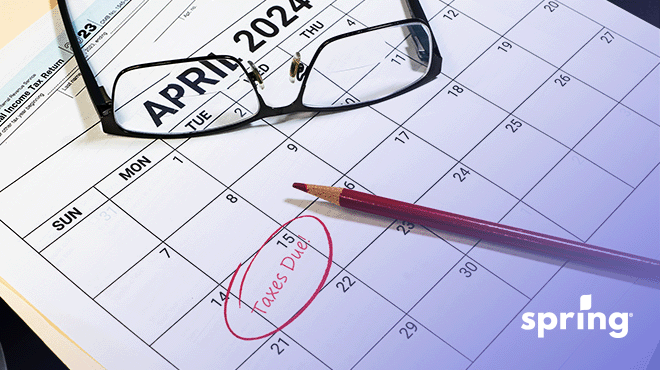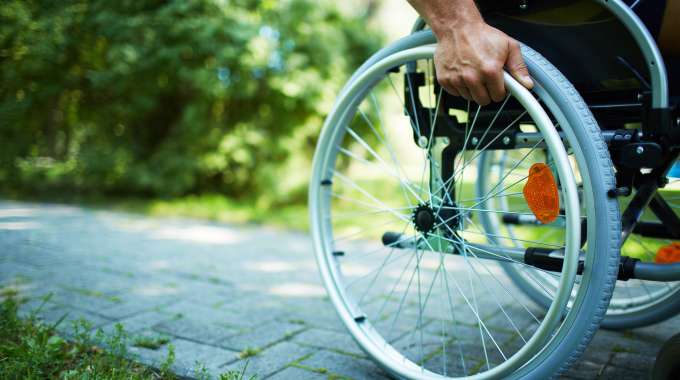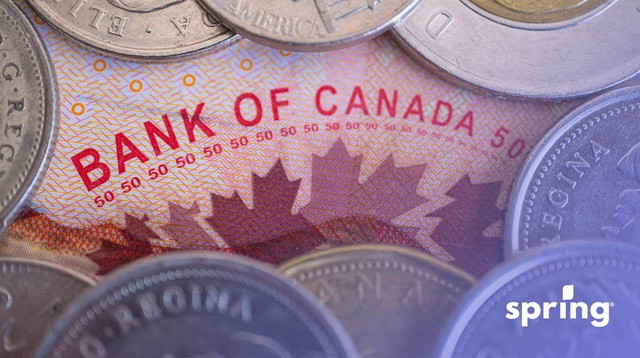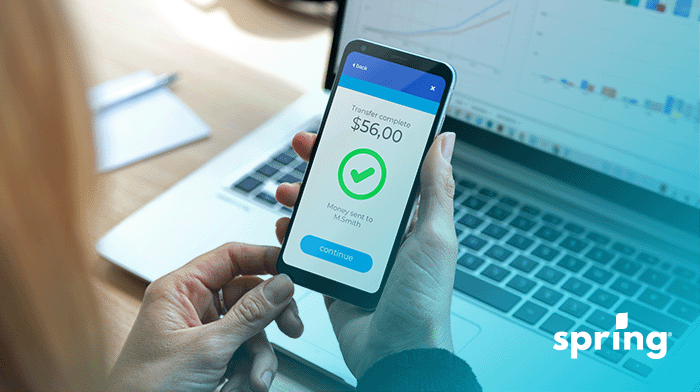When it comes to your taxes, there are usually no exceptions. Whether you owe or not, you need to file. Even if you don’t owe, by not filing your taxes, you could be missing out on government benefits that could help you out financially. Let’s take a look at a few different situations and what happens when you don’t file your annual income tax and benefit return during tax season.
Filing Your Taxes Late
In Canada, there is a deadline for filing your taxes every year. How this deadline affects you is based on whether or not you owe money. If you don’t owe any money, then it may just take longer for you to get your tax refund. If you do owe money, then you’ll likely be subject to a penalty.
When it comes to filing your taxes late when you owe money, usually this is self-employed individuals, you’ll be charged with a late filing penalty. The late filing penalty is 5% and an extra 1% for every month you file late, up to a maximum of 12 months. This penalty is separate from the interest owing on your late-paid tax bill. The only way to avoid late filing penalties is by filing on time.
The only time your filing late penalty is higher is when you’ve filed late in any of the previous years. Specifically, the last 3, and the CRA has to send a formal demand for you to file. In this case, your late filing penalty for the current year is then 10% instead of 5%. There will also be a charge of 2% for every month you’re late, not 1%.
Not Paying Your Taxes
If you file your taxes and don’t pay the balance owed by the due date, then the CRA will charge interest on the unpaid taxes. When it comes to outstanding debts, the CRA charges compounding daily interest on current and previous balances. However, if you’re in this financial situation, the best thing you can do is contact the CRA directly. They’ll be able to help you come up with a solution to get your debt paid.
The first way to deal with not paying your balance in full is to pay late taxes in partial amounts after the due date falls. When you do this, it reduces the amount of charged interest you’ll need to pay. You just keep doing so until the amount you owe is paid in full. However, you can also make a payment arrangement.
When it comes to your payment arrangement, the CRA will work with you to come up with a payment schedule that works the best for you. They can even put upcoming refund and benefit payments, as well as tax credits, on your owing balance in order to help you pay off the tax debt faster. Plus, if you have a CRA or Service Canada account, you can schedule pre-authorized tax payments online. That said, if you don’t make your installment payments, you can incur installment interest charges, which are called tax installment penalties. For this reason, some choose to borrow money to cover their tax obligations.
However, if none of these options work for you and you still can’t pay your tax obligations, the best option is to contact the CRA directly. There are extenuating circumstances to every situation, and in some of these situations, they can grant relief to interest and penalties and make arrangements for when you’re able to pay. Depending on your circumstances, they can provide taxpayer relief as well as waive penalties.
How Long You Can Go Without Filing Taxes in Canada
In Canada, how long you can go without filing your taxes depends on whether you owe money or not. If you don’t owe, then you avoid penalties. However, you can stop receiving some of your government benefits since you need to file your taxes annually to receive these. However, if you don’t file, you can technically go up to 10 years without filing. You have up to 10 years from the end of the calendar year in order to file that return, whether you owe or not. You’re just not likely to incur a penalty if you don’t owe.
Not Filing Your Taxes but You Don’t Owe Any Money
As we mentioned, if you don’t file your taxes and don’t owe any money, there won’t be any interest penalties. That said, your government benefits will be suspended until you file your return. These government benefits include:
- Canada Child Benefit Payments
- GST/HST Payments
- Guaranteed Income Supplement Payments
- Old Age Security Payments
- Canada Workers Benefit Payments
Going to Jail for Not Filing or Paying Taxes
In Canada, there are some cases where you could end up going to Jail based on not paying or filing your taxes. That said, in order for this to happen, you’d have to be convicted of tax evasion or tax fraud, which consists of:
- Not reporting your income on purpose
- Submitting false records or claims
- Claiming a fraudulent refund or benefit
- Submitting inflated expenses
While tax evasion and tax fraud are different things, they’re both illegal. Tax evasion is considered an offence under the Income Tax Act, specifically section 239. It’s also considered an offence under section 327 of the Excise Tax Act. Tax Fraud, however, is considered a criminal offence under the Criminal Code, section 380.
No matter what time of tax crime you commit, the consequences can be pretty severe. If you’re convicted of tax evasion, the consequences include:
- Paying the full amount of tax you owe, including interest and penalties
- A fine of up to 200% of the funds owed
- Jail time of up to 5 years
If you’re convicted of tax fraud, the consequences are a bit more severe and include:
- Up to 14 years in jail
- Fingerprinting
- Foreign-travel restrictions
It’s important to remember, though, that when the federal government audits you, that isn’t considered to be a criminal investigation. The purpose of the audit is to determine your tax liability. You may be required to pay back taxes you owe, but typically, audits are considered to be a civil matter, not criminal, and they’re used to correct an individual’s tax affairs due to tax avoidance.
In criminal investigations, there are CRA investigators who gather evidence to determine if tax evasion and tax fraud have occurred. They also use this information to determine whether or not any other serious tax violations occurred. After this, cases are recommended to the PPSC as long as the CRA determines that these cases have a likelihood of conviction.
What Happens When You Don’t File Your Taxes?
As we previously mentioned, the penalty for not filing your tax return is based on whether you owe funds or not. While we’ve already discussed what happens when you don’t file your taxes on time and within the year, what are the consequences if you don’t file your tax return for multiple years?
3 Years
As someone who doesn’t owe taxes, failing to file for 3 years may not result in any penalties, but it can take a while for your tax returns to be processed even with the required supporting documents. This is because there is a lot to go over. All of your missed benefit payments also have to be calculated. The easiest way to avoid this and avoid interruption is to file before the due date.
If you owe taxes, you could end up incurring a much larger penalty than just the 5% late fee. Whether or not the CRA will consider this tax evasion is up to them, and whether or not you file after three years. In this case, though, you’ll likely end up paying a 10% late penalty and a 2% penalty per month. With this long wait to file, you’ll be unable to avoid interest and penalties.
5 Years
Not filing for 5 years can be considered a more serious penalty for tax evasion. In a case like this, and you owe funds, the CRA can impose a penalty between $1,000 and $25,000. In some cases, you can even end up getting up to one year in prison.
10 Years
After not filing your taxes for 10 years, whether you owe or not, this can get tricky. When it comes to taxes, you can only file up to 10 years after the calendar year ends. This means you may not even be able to file for the first year missed. While this may not be as large of an issue if you don’t owe funds, if you do, it can lead to more serious charges of tax evasion. The best thing to do in this case is to contact the CRA.
What Happens When You Don’t Pay Taxes?
Since not paying your taxes isn’t considered tax evasion or tax fraud, there’s no jail time for not paying your taxes. That said, if you don’t pay your taxes, there can still be consequences. That said, when the government chooses to take action, it is based on what you owe as well as how long it’s been since you’ve paid.
When it comes to the government taking action, the more you owe, the more severe the consequences and penalties will be. That said, if you owe any money at all, interest will keep incurring until all of the funds owed are paid. As of January 1, 2024, the interest rate on overdue balances is 10%.
When the CRA starts to try collecting the funds that they’re owed, the first step they take is garnishing wages. When this happens, your employer receives a Garnishment Order, which usually requires them to withhold 30% of your wages. Keep in mind, though, they do have the ability to garnish up to 100% of your wages.
This is just the first step, though. The next step the CRA can take is to freeze your bank account. Once your bank is frozen, they can use this to convince you to pay or send an order of requirement to pay to your bank. This means they can seize the funds you have up until your tax owing.
The last step the CRA can take is to put a lien on your property. When this happens, the lien can’t be removed until your tax debt is paid. Depending on how much you owe, this could require you to sell in order to pay them. That said, before the CRA gets to this step, most who owe the CRA will visit a licensed insolvency trustee before it gets to this point. Owing taxes almost never results in legal proceedings just severe consequences.
The Number of People That Don’t File Taxes in Canada
In Canada, the majority of Canadians do file their taxes. However, it’s estimated that around 12% of Canadians choose not to file their taxes. These are mostly individuals who don’t owe funds to the government. While there are no penalties for this because they don’t owe, they do end up missing out on a lot of government benefits that could be available to them if they filed.
Do You Legally Have to File Your Taxes in Canada?
This is a tricky question. In Canada, you’re legally required to file your taxes if you owe money. This is usually those who are self-employed or small business owners or those in unique tax situations. However, in some cases, the CRA (Canada Revenue Agency) may also require you to file and ask you formally. Essentially, though, everyone in Canada is required to file their taxes. If you do owe and you don’t file, the CRA can take legal action, and you could be convicted of tax evasion. If you don’t owe and you don’t file, you likely won’t be penalized, but you won’t be eligible for benefits you could receive if you did file.
Filing Your Taxes When You Owe
Even if you owe the Canada Revenue Agency funds you’re unable to pay, it’s still important that you file your annual income tax return on time. For one, when you file your income tax returns, the CRA will use your refund to collect unpaid taxes. Even if it doesn’t cover the full amount, it can dent what you owe. Plus, it can reduce your tax instalment penalty and instalment interest charges.
If you’re in financial hardship and are going to owe more when you file again, it’s still important to file on time. This helps you avoid any penalties for filing your tax return late on top of penalties and interest on any amounts outstanding. Any new amounts that you owe will then be added to your current or previous balance.
If you already have a payment plan for the last tax year, you can contact the CRA after tax filing to add this new amount to your instalment payments or create a new payment plan. You may even be able to avoid late payment penalties if you make the arrangements for the newest tax instalments before the filing deadline. It’s important, though, that your taxes are accurate and you aren’t filing understated taxes or overstated credits.









